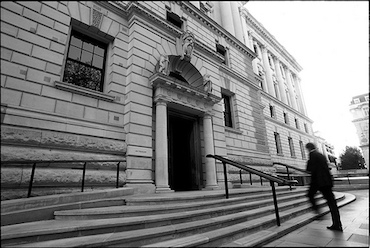The Treasury says that a swathe of new tax measures due to kick in from the start of the new tax year on Thursday 6 April will provide a Spring ‘pay bump’ for millions of taxpayers.
However, with new income tax raising powers being devolved to Scotland, Scottish higher rate tax payers face paying more in tax from the new tax year.
Under a deal struck by the SNP and Greens income tax rates for high earners will not increase in Scotland but the threshold for the 40p rate will be frozen instead of being increased, as it will be in England, Wales and Northern Ireland.
The Scottish Government is expected to raise about £160m for local services by keeping the threshold for the 40p rate at £43,000 instead of increasing it to £45,000 in line with England and Wales.
KPMG estimates that the move will means that higher rate taxpayers in Scotland face paying up to £400 more in 2017/18 than someone earning the same salary in England where the threshold for the 40p rate is increasing to £45,000 from Thursday.
Despite the extra tax for higher rate Scottish earners, the Treasury says that workers in the rest of the UK will see their take home pay increase when the Personal Allowance and Higher Rate Threshold are increased from 6 April. This will cut income tax for 31 million people, and take 1.3 million of the lowest paid out of income tax altogether, compared to 2015-16m, says the Treasury.
To boost saving, the Treasury is also introducing the Lifetime ISA and increasing the amount people can save tax free in an ISA from £15,240 to £20,000.
The Lifetime ISA will be available from 6 April and will allow adults between the ages of 18 and 39 to open an account and save up to £4,000 each year and receive a bonus of up to £1,000 a year on their contributions until they turn 50. Funds can also be withdrawn tax-free to put towards a first home or saved for later in life.
The new Family Home Allowance will mean that by 2020/21 a surviving partner can pass on £1 million without paying inheritance tax.
Financial Secretary to the Treasury, Jane Ellison said: “From April, millions of people will see their take home pay increase because of our action to raise the Personal Allowance and lift the National Living Wage.”
The National Living Wage and the National Minimum Wage rates will increase from this month. The National Living Wage for those aged 25 and over will increase from £7.20 per hour to £7.50 per hour. National Minimum Wage rates will also increase.
The Personal Allowance will rise to £11,500 and the Higher Rate Threshold to £45,000 in England and Wales from 6 April.
From April 2017, there will also be two new £1,000 tax-free allowances – one for income from selling goods or providing services, and one for property income.
People who make up to £1,000 from providing goods or services – such as sharing power tools, providing a lift share or selling goods they have made – will no longer need to pay tax on that income. In the same way, the first £1,000 of income from property, such as renting a driveway or loft storage, will be tax free.

